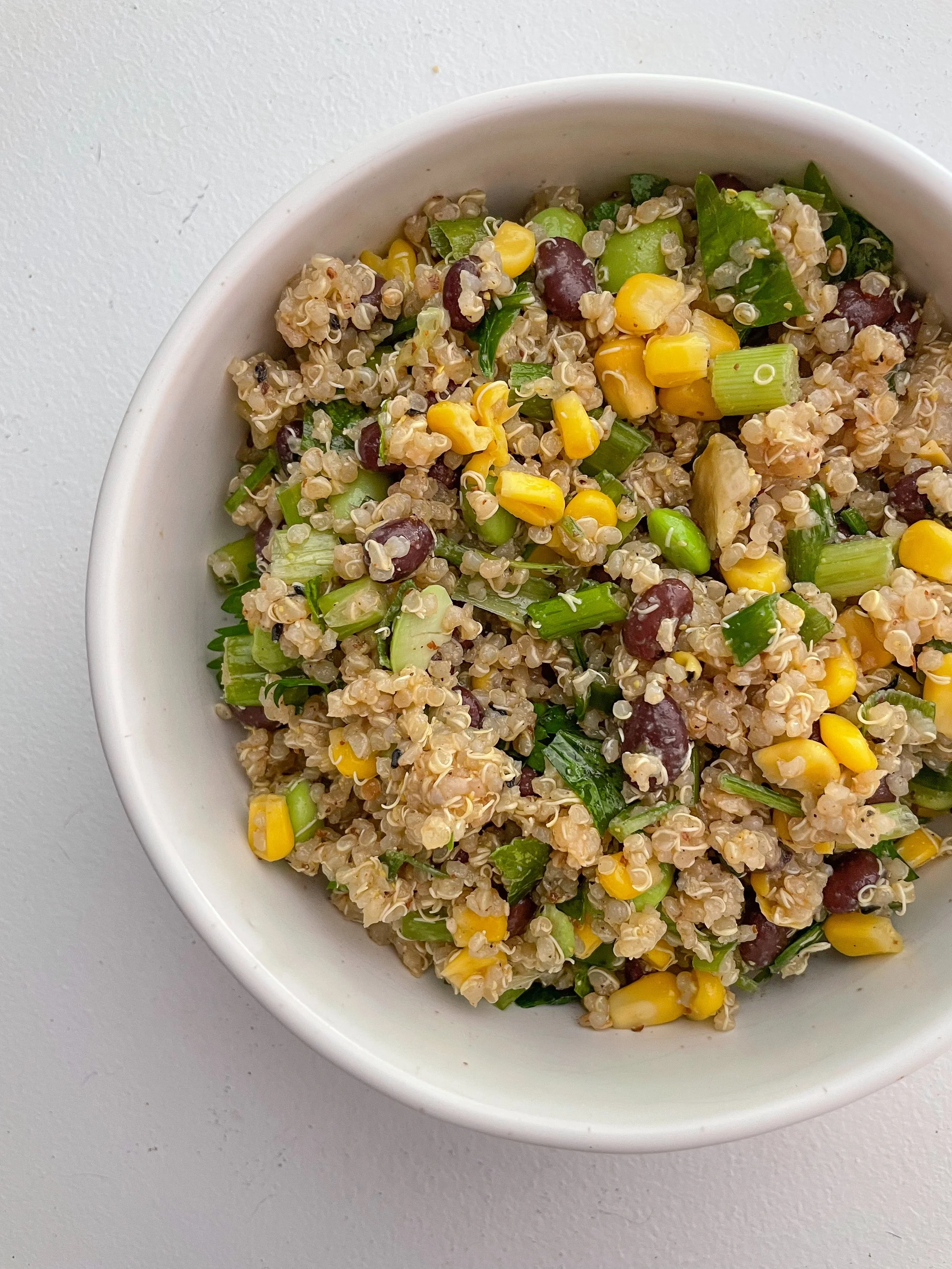Living in a Plastic World - Endocrine Disrupting Chemicals
The Impact of endocrine disruptors
Endocrine disrupting chemicals (EDC) are turning male frogs into females because of pesticide use in our environment! As a hormone and gut nutritionist, a lot of the symptoms I support in practice can be influenced by EDC exposure. BPA and phalates are just a couple popular ones people try to avoid.
Endocrine disruptors are linked to fertility issues, endometriosis, thyroid imbalances, PCOS and even hormonal cancers. Did you know EDC can cross the placental barrier and impact their child as well as their future grandkid?
I see a lot of DUTCH hormone tests (I order and interpret for you!) and I cannot believe how many have higher estrogen levels. There are 3 type of estrogen and we look at all of them via urine collection.
Estrone E1: converted by the liver into 2-OH-E1 and considered protective
Estradiol E2: converted into 4-OH-E1 and considered ‘the ugly’ estrogen
Estriol E3: converted into 16-OH-E1 and considered ‘the bad’ estrogen
The good, the bad and the ugly sounds dramatic, but I use this analogy to explain that some forms of estrogen are more beneficial than others. We need all of them, however, we start seeing hormone, mood and gut imbalances when they are out of range. The image below shows a pie chart and the break down of each type of estrogen in a client and the suggested ranges for optimal health.
You can see my client has very high estrogen levels
What can you do to keep your estrogen levels in check & reduce edc exposure?
Avoid chemical air fresheners in your car
Swap all home cleaners for natural ones. I’m obsessed with Branch Basics I order it to Canada (not sponsored)
Drink your water out of glass or stainless steel over plastic. Especially when it comes to one time use thin plastic bottles in the summer. When the plastic heats up, it ends up in your water!
Aim to buy loose leaf tea versus plastic tea bags. This one is an easy switch at home, especially because you’re using boiling hot water
Buy beans in bulk or if buying canned avoid BPA lined canned. Note, there other other endocrine disrupting chemicals aside from BPA that aren’t as marketed yet
Consider natural makeup and skincare products, do your best
Choose organic tampons and pads
Eat phytoestrogens! These are 1000x weaker than estrogen and they’re found in plants. These are BENEFICIAL for your health. Did you know Japanese women have less perimenopause symptoms because they consume soy frequently? I also find it so interesting that people fear these, but consume beer - also a phytoestrogen. Just saying : )
Other tips to keep estrogen levels in range
Ensure you’re having 1-3 bowel movements daily, ideally minimum 2. If you’re constipated and not fully emptying then you’re not excreting the old estrogen then body is done using. Magnesium is a superstar here. If you’re really backed up try citrate and if you’re wanting sleep, stress and muscle soreness support as well opt for magnesium bisglycinate
Support your phase 1 and 2 liver detoxification. We know if these needs extra support with supplements when we run a DUTCH hormone test or on a GI-MAP stool test we look at b-glucuronidase. Including cruciferous vegetables, especially broccoli sprouts, will help as it’s high in Indole-3-carbinol (I3C)
Keep blood sugar levels as stable as possible. It’s normal to have your blood sugar raise slightly with food, that’s why we have insulin! We just want to avoid a major rollercoaster ride and insulin resistance. With more insulin, the body may make more testosterone and this gets converted into estrogen via the enzyme aromatase
Evaluate your relationship with medication. Sometimes we need Western medicine and prescriptions - it can be very helpful. Other times, we are very quick to lean on them for quick fixes and bandaid solutions. Medication impacts your gut bacteria which is so closely tied to your sex hormones
Eat a lot of fibre rich plant foods (30 a week) and ensure you have some diversity. Avoid eating the same foods every day. Plants are naturally anti-inflammatory and will support your gut
To keep your bacteria happy, consume prebiotic rich foods. This is food for the bacteria. Garlic, onions, leeks, artichokes are examples of prebiotic foods.
Your gut is your largest endocrine organ
Don’t get stressed out and feel like you need to incorporate all these tips now. Do it slowly and overtime. I’m not perfect. I own a cast iron, but some meals stick to it so I default to my non stick (chickpea flour omelettes). Start with the super easy things to let go off, the air freshener in your car or your at home cleaning products. I’d love to hear what habits you’ve incorporated for your health and which ones you’re still working on!
If you want to say goodbye to aspirin, tums, laxatives, immodium, bloating teas, I’m here for you as a holistic nutritionist. I offer 1:1 packages for optimal gut and hormone health. I support clients that are majority plant-based or fully plant-based because I believe fibre heals!
To learn more about the GI-MAP stool test, please head here. Our gut health directly impacts are mood since 90% of the communication is from the gut to the brain.































